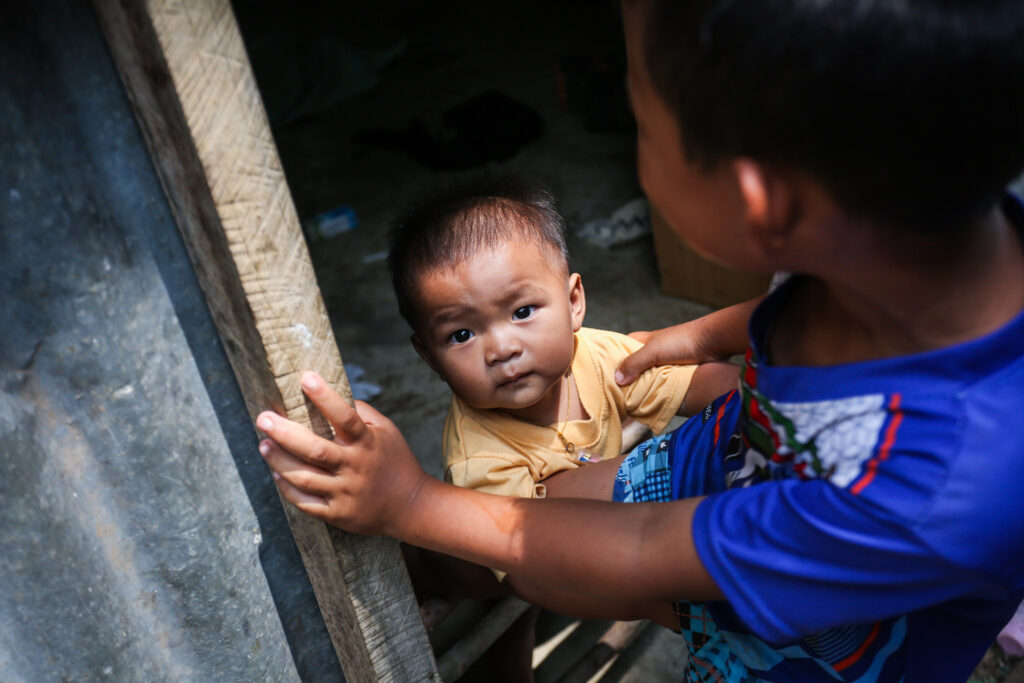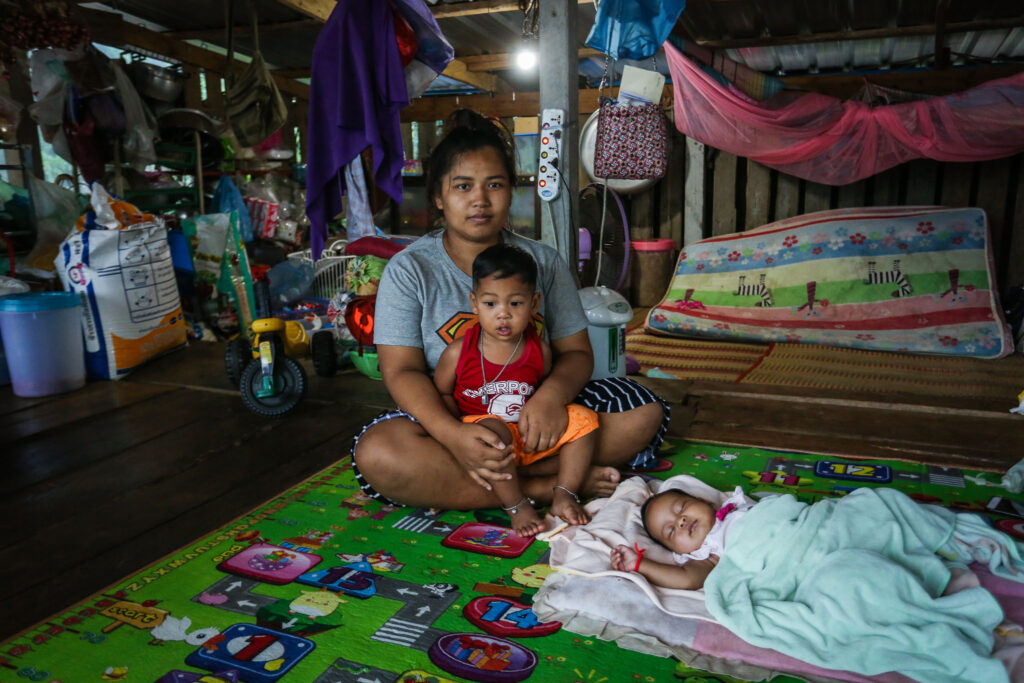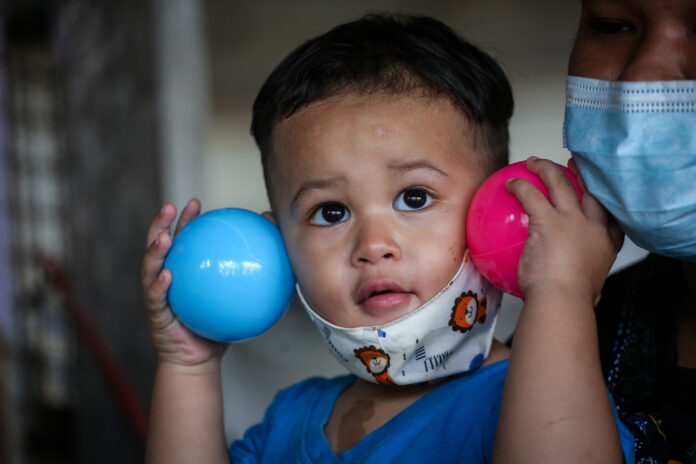BANGKOK, 7 June 2022 – As Thailand recovers from the COVID-19 pandemic and has the timely opportunity to make children’s right to the best start in life a reality for every child, UNICEF is reiterating the urgency for expanding the Child Support Grant to all children under 6.
“Expanding the coverage of the Child Support Grant is extremely crucial now more than ever given the unprecedented and far-reaching impact of the COVID-19 pandemic that has negatively affected income and employment for many families,â€Â said Kyungsun Kim, UNICEF Representative for Thailand, at a seminar organized at the Parliament to promote the importance of the universal Child Support Grant among parliamentarians.
“COVID-19 disruption has exacerbated and laid bare vulnerabilities across the population, and families with children have been hit hardest. Even in normal times, parents struggle to earn a living while caring for young children – so they not only bear a higher cost of living but also have fewer opportunities to earn an income. Expanding cash assistance to every family with young children will help provide basic income support, protect them from future shocks and ensure a thriving new generation for the country,†Kim added.

Organized by the Parliamentary Standing Committee on Children, Youth, Women, Older Persons, Persons with Disabilities, Ethnic Groups, and LGBT People, as well as the Parliamentary Commission on Labour, CSO Coalition on the Universal Child Support Grant, Thai Health Promotion Foundation and UNICEF, the seminar also raised the importance of increasing the budget for a universal Child Support Grant during the Budget Act Reading.
Thailand’s Child Support Grant provides a minimum level of social protection for children under 6 years of age. Since its landmark adoption in 2015, the scheme has undergone two expansions and is currently providing a 600-baht monthly cash grant to 2.3 million children under 6 from families with a per capita annual income below 100,000 baht.
In September 2020, the National Child and Youth Committee (NCYC) approved extending the Child Support Grant to cover all children under 6, with the decision now pending the cabinet’s approval. If endorsed, the scheme will benefit all 4.2 million children under 6 in Thailand.
According to an evaluation conducted by Thailand Development Research Institute in 2018, about 30 percent of children from poor families who were eligible for the grant were missing out due to errors during screening and registration – a common and well-documented challenge globally for cash assistance schemes that aim to reach the poorest.
“As a rapidly aging society facing the middle-income trap, Thailand cannot afford to fail to nurture its young children to their full potential. The opportunity cost is simply too high,†said Dr. Somchai Jitsuchon, research director at Thailand Development Research Institute.
The universal Child Support Grant scheme will require an additional budget of 1.5 billion baht, which will bring the total spending on the grant to around only 0.16 percent of the projected GDP in 2024. However, the total budget needed is going to decrease in the coming years due to a declining child population. In 2027, an estimated 27 billion baht will be required for the universal Child Support Grant. Evidence shows that the country can afford to expand the cash assistance scheme while maintaining its fiscal sustainability.

“Investment in the early years of its human capital is among the greatest and smartest investments this country can make – and can afford to make according to forecasts by UNICEF,†Kim added. “The first six years of a child’s life provide a key opportunity to build a strong foundation for children to stay healthy, do better at school, have higher earnings, and participate more in society. That means the cost of inaction could be much higher. UNICEF hopes that the cabinet will soon approve the NCYC decision and increase its investment in young children through extending the Child Support Grant to all children under 6 during their most important and formative stage of life.â€
The preceding was a press release from UNICEF, their statements and opinions are entirely their own.




